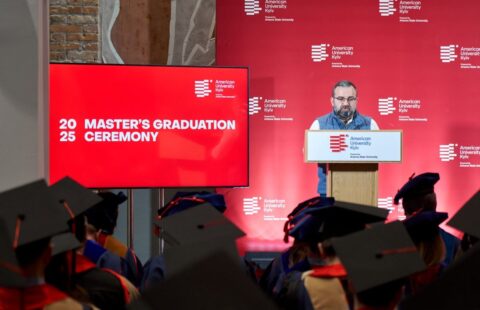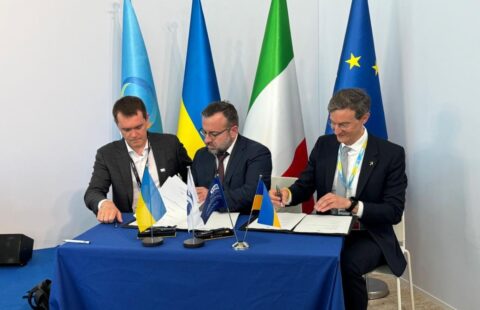
PORISTON in the BGV ecosystem: How a production asset turns into a strategic development tool
(The text is excerpted from the June-July 2025 print edition of Forbes Ukraine)
The investment group BGV Group Management is reviving aerated concrete production at the former Aeroc plant, integrating the facility into its own construction ecosystem. Relaunched under the new PORISTON brand, the company is re-entering the market after a three-year hiatus, aiming to reshape industry standards with a comprehensive lineup of building products. The introduction of PORISTON enhances BGV Group’s broader strategic portfolio, which already includes development, infrastructure, energy, and mining projects.
A NEW ELEMENT OF BGV’S CONSTRUCTION VERTICAL
In December 2024, Trident Geoinvest Ukraine, a subsidiary of Gennadii Butkevych’s BGV Group Management investment group, acquired one of Ukraine’s largest pre-war aerated concrete producers. The Aeroc plants, which halted operations at the onset of the full-scale invasion, are now returning to the market under the PORISTON brand. The privatization agreement was one of the largest deals of 2024, with the company acquired for UAH 1.89 billion – nearly twice the starting price. Proceeds were allocated to a fund addressing the aftermath of Russia’s armed aggression. For BGV, this acquisition is part of a broader investment strategy rather than a one-off transaction. The group already carries out infrastructure and development projects in various regions, including through its specialized company, BGV Development. In September 2022, BGV Group Management launched crushed stone production with an annual capacity exceeding 1.5 million tons. The group also holds a permit for sand mining in the Zhytomyr region. With the integration of PORISTON into this supply chain, BGV can now offer a comprehensive approach to providing the construction sector with essential materials.
“We are not waiting for the end of the war. We are investing and building today. Therefore, such projects are organic for our group of companies,” BGV comments.
CLOSED-CYCLE PRODUCT MODEL
In July 2025, the Berezan plant is set to resume operations with a full technological cycle. Following the completion of the second phase of equipment modernization in 2026, production is also scheduled to restart at the Obukhiv facility. With these combined capacities, the company will be able to produce more than 1.15 million cubic meters of aerated concrete annually. PORISTON is actively rebuilding its distribution network, with over 90% of the previous brand’s dealers already returning as partners – an indication of strong trust in the new ownership and steady market demand. This paves the way for future expansion, as the company plans to further increase production capacity over the next two to three years, strengthening the brand’s presence in western Ukraine. Alongside rebranding, PORISTON has also revised its market strategy. PORISTON has become the sole Ukrainian manufacturer to offer aerated concrete in densities of D150 and D300, in addition to the standard D400–D500 range, providing enhanced energy efficiency ideal for thermal insulation and wall cladding in construction. The product lineup includes five categories—wall blocks, partition blocks, U-blocks, reinforced elements, and insulation blocks—enabling the company to cover the entire construction cycle with a single manufacturer. This approach optimizes logistics and helps reduce overall costs.
TECHNOLOGICAL SUSTAINABILITY AND MARKET SIGNAL
PORISTON production is focused on automation, energy efficiency, and green construction standards. The plants will feature modernized infrastructure, while the company’s development strategy emphasizes digitalization and continuous quality improvement. The brand is competing not only on price, but also through rapid installation, structural durability, and reliable logistics. The name PORISTON (derived from “porous stone”) was chosen through an internal competition, with the winning suggestion coming from the plant team, underscoring a culture where change is encouraged from within as well as from the top. The relaunch’s social impact is equally significant: once the Berezan and Obukhiv sites reach full capacity, they will generate hundreds of jobs for local communities, further positioning business as a key driver of regional economic recovery. This case illustrates that major Ukrainian groups are now ready to invest in industrial assets, laying the groundwork for large-scale reconstruction. In this sense, PORISTON is more than a brand relaunch—it signals the arrival of a new type of market player, one that tackles both development challenges and long-term economic stability.


